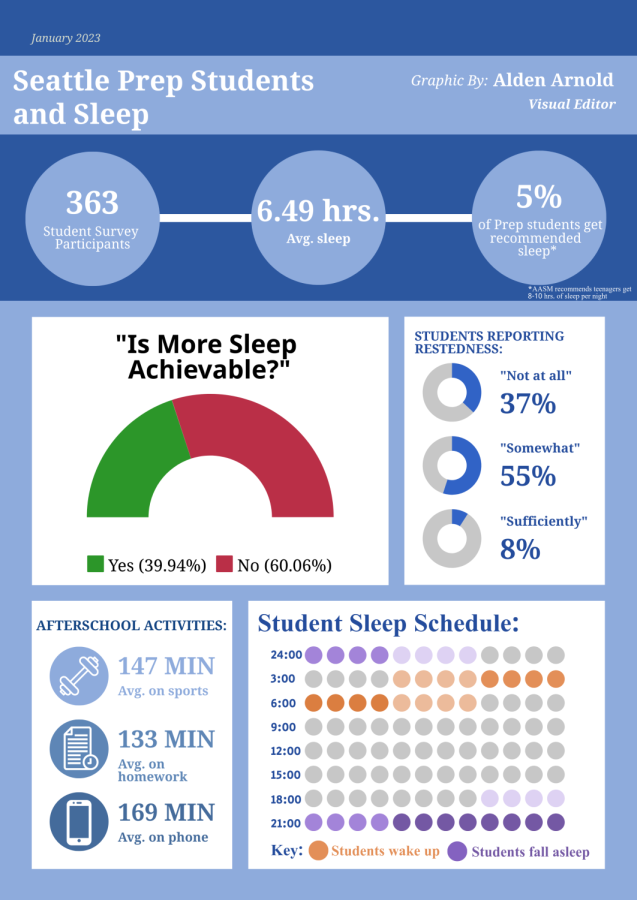A Full Night of Sleep: Essential, yet Scarcely Achieved
March 29, 2023
The quick pace of modern life can make it difficult to stop and rest. Although overlooked, sleep is an essential function needed to maintain mental and physical health. Despite being told that sleep is crucial for success, Prep students rarely achieve a full night of rest.
A study done by Johns Hopkins pediatrician Michael Crocetti indicates that teenagers need between 9 and 9 1/2 hours of sleep per night to undergo the second developmental stage of cognitive maturation, yet only 5.2% of students at Prep who responded to the schoolwide poll get over 8 hours each night. Over half of the student population only gets between 5 and 7 hours a night and attribute the challenge of sleeping the recommended amount to the amount of time that needs to be dedicated to homework, sports, family responsibilities, personal interests, and extracurriculars after school each day.
Jasper Park ‘25 shared that it can be difficult to get a full night of sleep when after school he’s “doing a sport, working on homework, trying to go to the gym, eating dinner, and doing stuff with family.”
Sarah O’Connell ’23 shed light on other challenges of getting to bed at a reasonable hour and stated, “My phone can be really distracting at night. I also sometimes feel that I get an unnecessary amount of homework and I’m up late doing that, but other times it’s my own fault and poor time management.”
A lack of sleep not only has long-term consequences on one’s health, but also on an individual’s mood throughout the day, ability to interact with others, and capacity to understand and retain information.
“If for some reason I don’t get a good amount of sleep, by the end of the following day, I feel terrible . . . I can definitely feel a difference in class because it’s so much more difficult to focus,” said Millie Matthews ’26.
According to the American Academy of Pediatrics, high schools should start at 8:30 a.m. or later to give students the opportunity to get the sleep they need. Park supports this concept and stated, “I think it’s probably a good idea to start school later because it’s easier to sleep in later than it is to get to bed earlier because of natural sleep cycles.”
Emeline Belliard ‘26 said, “I think it’s important, from an educational standpoint to get in as much learning as possible, so if this were to happen and the amount of time students are in school doesn’t change then I think that that’s fine. But if we start later, we’re just going to end later, and I’d rather get out earlier.”
Although it can be difficult to manage the workload at an academically rigorous school and balance one’s studies with the activities and passions that make Prep students so well-rounded, it is important to strive for a full night of sleep to give oneself the rest that one needs and deserves.



